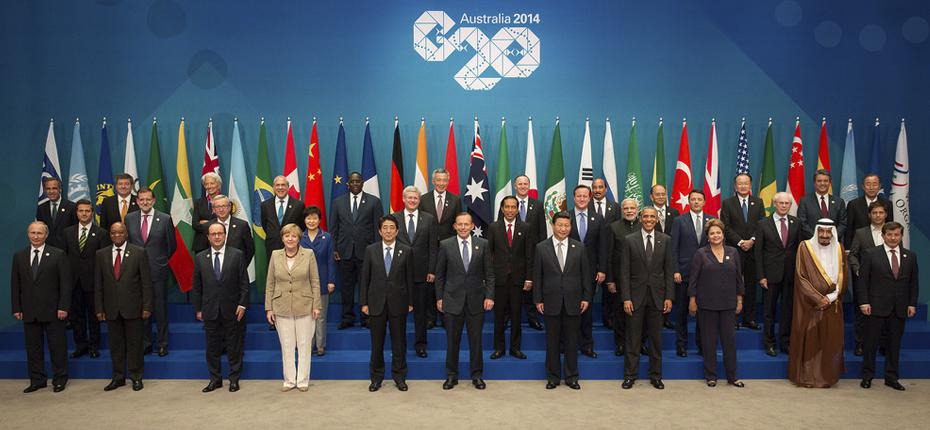why are women’s issues off the agenda at the 2014 G20 Summit?
It’s no surprise that the G20 Summit has a common theme: wealthy, powerful people dictating how we should manage the wealth of poorer, less powerful people. I cringed as I heard my television bark at me that the G20 is a gathering of the ‘most powerful men in the world’. This begs the question: where are the most powerful women?
Only two women sit at the G20 table, but there seems a concerted campaign has sought to silence these female voices. Surely the Australian media could give more airtime to the female voices in the room, rather than buying into the personality cult that follows Vladimir Putin and Barack Obama.
Brazil’s female President, Dilma Rouseff, a participant in the G20, has overseen a success story in focusing on gender as a major economic issue. Closing the education gap between men and women has reduced poverty, improved maternal health indicators and enabled women to become key economic participants, which has contributed to economic growth and a boost in female representation in politics. Surely the G20 could take the time to acknowledge and listen to the Brazillian President and heed the warning: tap into the economic potential of women or miss out on economic growth.
Angela Merkel, who was named Forbes magazine’s second most powerful person in the world, and who is, arguably, one of the most powerful women in the world, sits at the G20 table with just as much credibility as her male counterparts, yet the only coverage of her so far has revolved around a night of partying at a Brisbane Nightclub on the evening before the G20 began.
Continuing to ignore the two female leaders at the G20 table, and failing to address gender, not just as a social issue, but as a key economic issue, has resulted in one of the greatest disappointments of the G20.
The G20 must acknowledge that women will be disproportionately affected by their policies – they stand to be disproportionately affected by climate change, access to healthcare and education, unemployment and economic slumps, whilst remaining sorely unrepresented at forums, such as the G20.
And it seems strange that the only mention of gender thus far is a few throwaway lines by Barack Obama in his side-speech at the University of Queensland. No mention of gender has publicly occurred on the negotiation table as the leaders head towards the finale Communique, which seems a glaring omission given the potential economic growth that the G20 countries are willing to ignore.
The international monetary fund reported that the Global economy has missed out on 27% of GDP growth per capita because it has neglected to address the labour market gender gap. This means trillions of dollars in economic growth for the global economy. If we close the gender gap in the labour market, US GDP would be raised by five percent and Japan’s by nine percent. Why, then, would this not be discussed at the world’s most important forum on economic growth?
China, Indonesia and South Africa have some of the widest gender gaps in the world, yet given the opportunity to work in partnership with the international community on this issue they remain completely silent, preferring to miss out on economic growth than awarding its citizens equal rights and economic opportunities. In doing so, they undermine the entire purpose of the G20.
It is both hypocritical and negligent to leave women off the G20 agenda.
If we want to see more women at the G20 table, we need to create the conditions in which women have a truly equal opportunity to be represented in business and politics. This is a missed economic opportunity, but worse, it is a missed opportunity for the world’s women.


